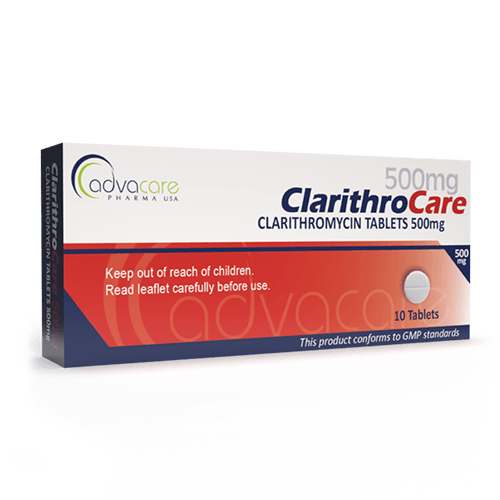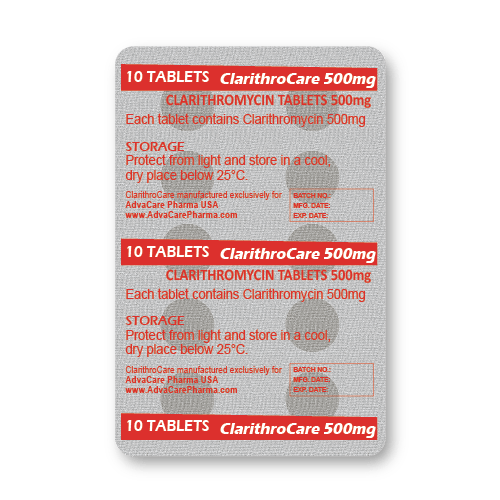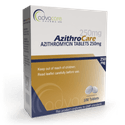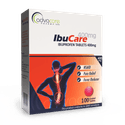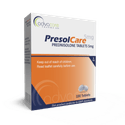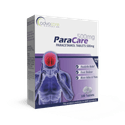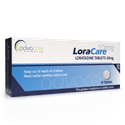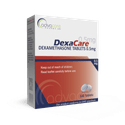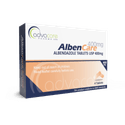- Home›
- Pharmaceuticals›
- Pharmaceutical Tablets›
- Clarithromycin Tablets
Clarithromycin Tablets
Dosage
Packaging
What is Clarithromycin?
Active Ingredients: Clarithromycin
Clarithromycin Tablets are an antibiotic drug used to treat certain bacterial infections, such as chronic bronchitis, pharyngitis, acute maxillary sinusitis, tonsillitis, pneumonia, and infections of the ears and skin. This medication may be used with other drugs to treat ulcers caused by H. pylori.
Clarithromycin is classified as a macrolide antibiotic. It works by stopping the growth of bacteria.
AdvaCare Pharma is a producer and exporter of Clarithromycin Tablets. This medicine is produced in our GMP-certified facilities in China, India, and the USA. These facilities are routinely audited to ensure they comply with health, safety, and environmental standards.
Why are we a leading Clarithromycin manufacturer?
As a reputable Clarithromycin manufacturer, we are dedicated to ensuring that GMP guidelines and standards strictly apply to the manufacture of our entire range of 200+ pharmaceutical treatments in tablet dosage form.
AdvaCare Pharma is an American pharmaceutical company committed to the manufacture of high-quality, affordable pharmaceuticals for a global market. The extensive international network that we partner with includes pharmaceutical distributors, hospitals, pharmacies, and a variety of other medical institutions. Our vision is to manufacture Clarithromycin Tablets, and other quality-assured oral solid treatments, that get into the hands of those that need them most.
Uses
What is Clarithromycin used for?
It is used to treat various bacterial infections, such as:
- bronchitis
- pharyngitis
- acute maxillary sinusitis
- tonsillitis
- pneumonia
- infections of the ears and skin
It is also used with other drugs to treat ulcers caused by H pylori.
How should Clarithromycin Tablets be used?
This medication is intended to be taken orally.
What dose should be taken?
Adult Dosing Recommended dosage may vary based on different medical conditions:
- For bacterial infections, the usual dose for adults is 250-500mg taken every 12 hours. The duration of treatment is 7-14 days. The exact dosage and duration will depend on the type of infection and severity of the illness.
- For chronic bronchitis (acute bacterial exacerbation), the usual dose is 250-500mg taken every 12 hours. The duration of treatment is 7-14 days.
- For community-acquired pneumonia, the usual dose is 500mg taken every 12 hours for at least 5 days. Clarithromycin may be used in a multi-drug regimen.
- For streptococcal pharyngitis/tonsillitis, the usual dose is 250mg taken every 12 hours. Treatment should continue for 10 days.
- For MAC primary prophylaxis for HIV patients, the usual dose is 500mg taken every 12 hours.
- For MAC secondary prophylaxis for HIV patients, the usual dose is 500mg taken every 12 hours. Ethambutol should be used together with Clarithromycin.
- For the treatment of disseminated MAC, the usual dose is 500mg taken every 12 hours. Ethambutol should be used together with Clarithromycin.
- For H. pylori infection (triple/quadruple treatment), the usual dose is 500mg taken every 12 hours for 5-14 days. It is intended to be part of a multi-drug regimen.
- For H. pylori infection, the usual dose for dual treatment is 500mg, taken every 8 hours. Treatment should last for 14 days. Clarithromycin should be given with omeprazole 40mg for 14 days, followed by an additional 14 days with omeprazole 20mg if an ulcer is present.
- For endocarditis prophylaxis for dental procedures (off-label), the usual dose is 500mg taken once. The tablet should be taken 30-60 minutes before the dental procedure.
- For multibacillary leprosy (Hansen disease), the usual dose is 500mg taken once per day. Treatment should continue for 6 months of a 24-month multi-drug regimen. Clarithromycin is not a first-line option and is typically used for patients unable to take rifampin.
- For paucibacillary leprosy (Hansen disease) (off-label), the usual dose is 500mg taken once per day. Treatment should continue for 6 months of a 24-month multi-drug regimen. Clarithromycin is not a first-line option and is typically used for patients unable to take rifampin.
- For pertussis (off-label), the usual dose is 500mg taken every 12 hours. Treatment should continue for 7 days.
Renal Dosing Guidelines for dosing adjustments for patients with renal impairment are as follows:
- CrCl < 30ml/min: The usual dose should be decreased by 50% or given every 24 hours.
- HD: It is advised to consider decreasing the dose by 50% or giving it every 24 hours. On dialysis days, it should be administered after dialysis. No supplement is necessary.
- PD: It is advised to consider decreasing the dose by 50% or giving it every 24 hours. No supplement is necessary.
Hepatic Dosing No adjustments are necessary for patients with hepatic impairment.
The dosage is based on medical condition, response to treatment, age, and weight. Refer to a doctor or pharmacist for guidelines on dosage. Do not exceed what they advise.
Pediatric Dosing For bacterial infections in children over 6 months old, the usual dose is 15mg/kg per day. The dose should be divided and taken every 12 hours. The maximum dosage is 1000mg per day. The duration of treatment depends on the type of infection and the severity of the illness.
For streptococcal pharyngitis/tonsillitis in children over 6 months old, the usual dose is 15mg/kg per day. The dose should be divided and given every 12 hours. Treatment should last for 10 days. The maximum dosage is 250mg per dose.
For atypical community-acquired pneumonia in children over 3 months old, the usual dose is 15mg/kg per day. The dose should be divided and given every 12 hours. Treatment should last 7-10 days.
For MAC primary prophylaxis for pediatric patients with HIV, the usual doses are as follows:
- 20 months to 12 years old: 15mg/kg per day, divided and taken every 12 hours. The maximum dosage is 500mg per dose
- 13 years and older: 500mg taken every 12 hours
For MAC secondary prophylaxis for pediatric patients with HIV, the usual doses are as follows:
- 20 months to 12 years old: 15mg/kg per day, divided and taken every 12 hours. The maximum dosage is 500mg per dose. This drug should be used alongside ethambutol
- 13 years and older: 500mg taken every 12 hours. This drug should be used alongside ethambutol
For treatment of MAC, the usual doses are as follows:
- 20 months to 12 years old: 15-30mg/kg per day, divided and taken every 12 hours. The maximum dosage is 500mg per dose. This drug should be used alongside ethambutol
- 13 years and older: 500mg taken every 12 hours. This drug should be used alongside ethambutol
For endocarditis prophylaxis during dental procedures (off-label), the usual dose is 15mg/kg per dose. The tablet should be given 30-60 minutes before the start of the procedure.
For use in a multi-drug regimen to treat H. pylori infection (off-label), the usual doses are as follows:
- children with a body weight of 15-24kg: 250mg taken twice per day for 10-14 days
- children with a body weight of 25-34kg: 500mg taken in the morning and 250mg taken in the evening. Treatment should continue for 10-14 days
- children with a body weight > 35kg: 500mg taken twice per day for 10-14 days
For multibacillary leprosy (Hansen disease) in children over 15 years old, the usual dose is 500mg taken once per day. Treatment should continue for 6 months of a 24-month multi-drug regimen. Clarithromycin is not a first-line option and is typically used for patients unable to take rifampin.
For paucibacillary leprosy (Hansen disease) in children over 15 years old (off-label), the usual dose is 500mg taken once per day. Treatment should continue for 6 months of a 24-month multi-drug regimen. Clarithromycin is not a first-line option and is typically used for patients unable to take rifampin.
For pertussis (off-label) in children over 1 month old, the usual dose is 15mg/kg per day. The dose should be divided and taken every 12 hours. Treatment should continue for 7 days. The maximum dosage is 1g per day.
Renal Dosing for pediatrics Guidelines for dosing adjustments for children with renal impairment are as follows:
- CrCl 10-30ml/min: The usual dose should be decreased by 50%.
- CrCl < 10ml/min: 25% of the divided usual dose should be given every 24 hours.
- HD: 25% of the divided usual dose should be given every 24 hours. On dialysis days, it should be administered after dialysis. No supplement is necessary.
- PD: 25% of the divided usual dose should be given every 24 hours. No supplement is necessary.
Hepatic Dosing for pediatrics No adjustments are necessary for children with hepatic impairment.
The dosage is based on medical condition, response to treatment, age, and weight. Refer to a doctor or pharmacist for guidelines on dosage. Do not exceed what they advise.
Who can use Clarithromycin?
Clarithromycin Tablets can be given to adults and children, but caution is advised for specific groups of patients.
Pregnant The use of Clarithromycin should be avoided in pregnant women unless no other medication may be used. Based on limited human data, there is a possible risk of cardiovascular problems, and based on conflicting human data, there may be a risk of spontaneous abortion. Conflicting animal data suggests a risk of teratogenicity, cardiovascular anomalies, and intrauterine growth restriction.
Breastfeeding Clarithromycin should only be used in breastfeeding women if the benefits outweigh the risks. Based on conflicting human data, there may be a possible risk of infantile hypertrophic pyloric stenosis. There is no human data available to assess the effects of this drug on milk production.
Children This medicine is safe for use in children. It is important to note that side effects are more common in children.
Geriatric There have not been studies performed to demonstrate any problems specific to this population. It is important to note that elderly patients over 65 years old may be more susceptible to QT prolongation associated with this drug.
Side Effects
As with all pharmaceuticals, some unwanted effects can occur from the use of Clarithromycin Tablets.
Common side effects include, but may not be limited to:
- stomach pain
- headache
- mild diarrhea
- mild itching
- unusual and unpleasant taste in your mouth
For a comprehensive understanding of all potential side effects, consult a medical professional.
If any symptoms persist or worsen, or you notice any other symptoms, please call your doctor immediately.
Precautions
Do NOT use Clarithromycin Tablets if:
- You are allergic to any of the ingredients.
- You have ever had jaundice or liver problems caused by taking clarithromycin.
- You have liver or kidney disease and are also taking colchicine.
Before treatment, consult your doctor regarding any medications you are taking to address potential drug interactions.Some interactions with commonly used medications can be deadly or cause undesirable side effects.
This medication may not be suitable for people with certain conditions, so it is important to consult with a doctor if you have any health conditions, such as heart problems, diabetes, muscle problems, kidney disease, or liver disease.
References
Effect of clarithromycin on sputum production and its rheological properties in chronic respiratory tract infections
This is a parallel, double-blind, placebo-controlled fashion study that determines the effects of long-term administration of clarithromycin (CAM). The participants in this study were divided into two groups. The first group included 16 patients who received CAM (100mg, twice a day) for 8 weeks, and the second group included 16 patients who received a placebo.
The airway secretion, the daily amount of expectorated sputum, solid composition, viscoelastic properties (including elastic modulus and dynamic viscosity), and sputum microbiology were measured during the study.
Results showed that CAM decreased sputum production from 51 +/- 6 to 24 +/- 3g/day after treatment, and placebo had no effect.
The conclusion of this study is that long-term treatment with CAM reduces the amount of sputum production. It also inhibits airway secretions and increases sputum elasticity.

You might be interested in...
Why AdvaCare Pharma?
As an industry leader, we are aware of our responsibility to provide affordable and sustainable solutions to improve healthcare worldwide.
